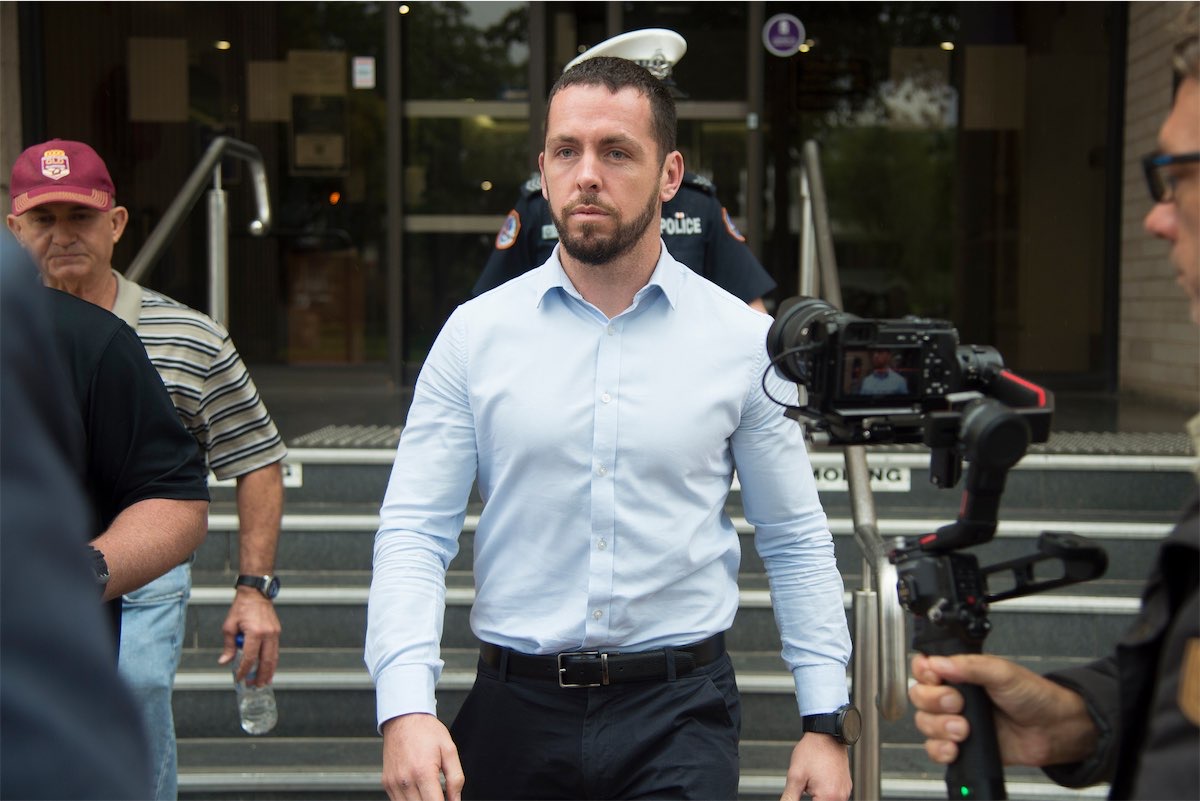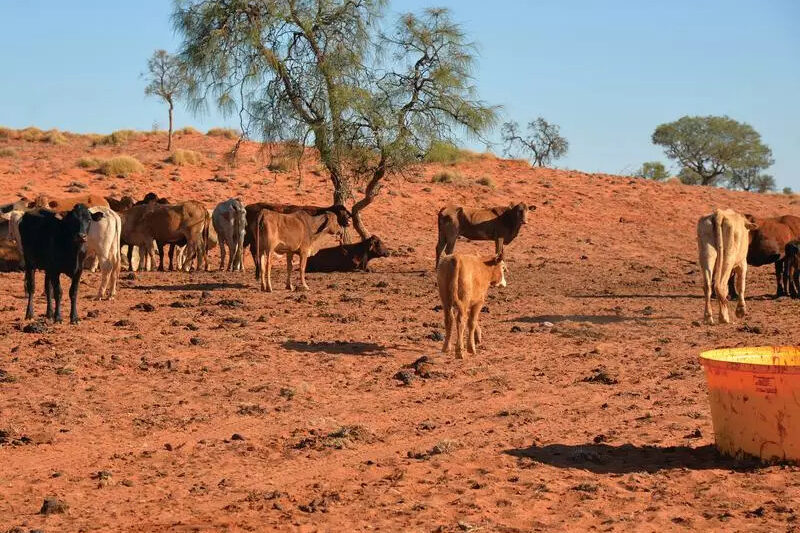
By (A)manda Parkinson in Darwin
Former police constable Zachary Rolfe’s “fascination with violence” barely featured in his criminal trial but during Australia’s longest-running coronial inquest his actions have been characterised as racist.
Despite this, the NT coroner is being encouraged to discount racism as a cause of death in Mr Rolfe’s fatal shooting of Warlpiri-Luritja teen Kumanjayi Walker.
NT coroner Elisabeth Armitage closed the inquest into Kumanjayi Walker on Thursday to consider more than 5000 pages of transcripts and 1990 pages of written submissions before she hands down her findings in February.
Mr Walker was shot three times at close range by then-constable Rolfe during a botched arrest at his Yuendumu home, three hours northwest of Alice Springs in November 2019.
In March 2022, an NT Supreme Court jury acquitted Mr Rolfe of murdering the 19-year-old.
Evidence suppressed during the criminal trial was made public through the coronial process revealing Mr Rolfe’s “fascination with violence”, which included at least four previous uses of excessive force. In addition was the use of force almost weekly in the course of his duties.
In closing submissions, NT Police counsel Ian Freckelton KC said police were not going to provide platitudes.
“It is absolutely undeniable that Mr Rolfe is a racist,” he told the inquest at Alice Springs.
“People who talk about ‘loser locals, c**ns, neanderthals… on the basis of their Aboriginality, are racists, and it’s important to call it as it is.”
Text messages between Mr Rolfe and other officers had revealed a string of racist slurs and the normalisation of using excessive force against Aboriginal people.
Dr Freckelton said Mr Rolfe’s attitudes were “inconsistent with policing anywhere in Australia”, but maintained the force was not inherently racist.
He and Mr Rolfe’s lawyer Luke Officer, explicitly told the coroner racism could not be considered under the Coroner’s Act, which only permits her to investigate the cause of death.
“There’s no need to inquire into whether racism played a part, as the Northern Territory police force have agreed with us, there is no direct evidence of that, it has no relevance to cause of death,” Mr Officer said.
Mr Walker died from being shot by Mr Rolfe. He bled out from his wounds on the cement floor of a police cell, before his body was snuck out past his family in an ambulance.
His family gathered outside the police station all night unaware he was not inside and had died. The sun would rise the next morning before they were told and only after more police officers with long rifles descended on the community.
When the coronial inquest began in September 2022, Mr Walker’s family erected a sign on the lawns opposite the Alice Springs local court calling for one thing: “tell the truth”.
The two years that followed were filled with delays as Mr Rolfe attempted to avoid taking the stand in the coronial inquiry.
But despite legal challenges, the family rallied on the lawns until the last day of the inquest, seeking justice not only for Mr Walker but for a community that felt it had been robbed.
“Whatever the government thinks, the government has to realise that we are the indigenous people of this land and we want to be able to help our young people,” Kumanjayi Walker’s grandmother Lottie Robertson told the court in a video statement.
“It’s a very strange picture that we see all the time in our mind; how his life was cut short by a stranger, by a strange weapon.”
Counsel assisting the coroner Peggy Dwyer’s summations urged the coroner to consider the character of Mr Rolfe as a direct cause of death.
She characterised him as a police officer who would “do anything to get his man” and compared his actions in stark contrast to his colleagues.
Mr Rolfe was “undisciplined, ego-driven and contemptuous of authority”, she told the coroner.
“Mr Rolfe was a man whose ego was wrapped up in his use of force and who took pride in, and derived a sense of worth from expressing his dominance over others.
“They were generally Aboriginal men and he expressed that dominance with the use of force.
“When Mr Rolfe used excessive force, he advertised it to some of his colleagues because he thought it was funny. When taken together with a myriad of examples of Mr Rolfe … boasting about his use of force, that conduct is reflective of his fascination with violence.”
In reply to Dr Freckelton’s submissions that racism would be only “speculative” in the cause of death, Dr Dwyer called on evidence heard earlier from an expert, police psychologist Bruce Van Heaften.
When giving evidence he said police exposed to repeated trauma do not solely fall back on their training, but their “attitudes and values”.
“The decisions Mr Rolfe made on 9 November, 2019, Your Honour… were influenced by (Mr Rolfe’s) attitudes and his values, and they included attitudes of sexism, contempt for female police, contempt for some superiors, contempt for bush cops and racism.”
The coroner must dissect the brief of evidence, guided by the NT Coroner’s Act, to make a series of findings.
Her decision could become precedent for several other coronial inquests around Australia that examine the socio-political causes of death.
Who can be trusted?
In a world of spin and confusion, there’s never been a more important time to support independent journalism in Canberra.
If you trust our work online and want to enforce the power of independent voices, I invite you to make a small contribution.
Every dollar of support is invested back into our journalism to help keep citynews.com.au strong and free.
Thank you,
Ian Meikle, editor





Leave a Reply